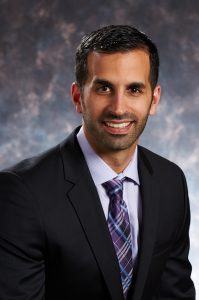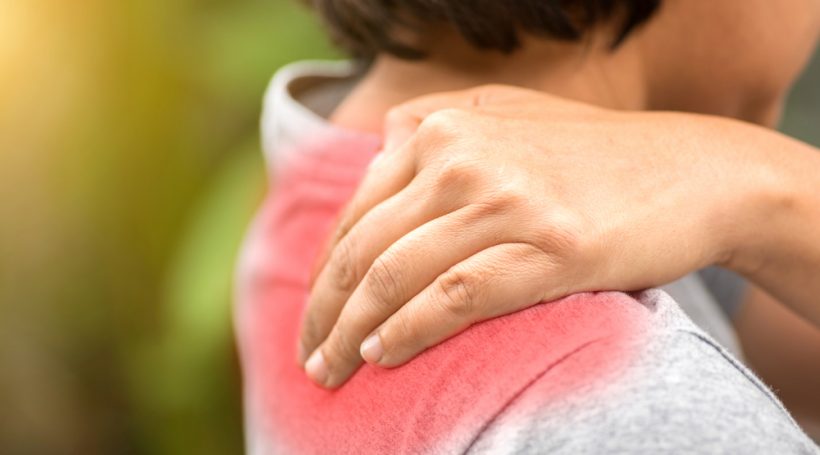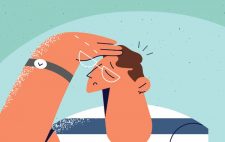Experienced board-certified pain specialists from Relievus explain how they’re using today’s most advanced technology and treatments to help patients find relief from chronic pain – and regain their lives.
- Medical marijuana
Daily headlines are a stark reminder that America’s opioid epidemic is reaching tragic levels.

Dr. Young Lee
But Young Lee, MD, a board-certified anesthesiologist and pain specialist, says medical marijuana is improving the lives of patients suffering from chronic pain, while also reducing the misuse of and addiction to prescription pain killers.
“Our Medical Marijuana Program uses an alternative treatment, so if other methods have failed you before, we can help you finally get the relief you need. We carefully evaluate each patient and then formulate a treatment plan to best address their issues,” says Lee.
Patients who have been diagnosed with severe, debilitating or life-threatening medical conditions including epilepsy, cancer, PTSD, multiple sclerosis and Crohn’s disease may be eligible to participate in the program.
Lee says the effectiveness of medical marijuana comes from THC and CBD, two compounds found in the plant.
“The compounds work to control inflammation, and they also work as anti-seizure and anti-psychotic agents,” says Lee. “Patients enrolled in the program are reporting less pain, and they’re eating and sleeping better.”
- Stem-cell and platelet-rich plasma therapies
For years, professional athletes like Kobe Bryant and Rafael Nadal have been using stem-cell therapy and platelet-rich plasma therapy to alleviate post-injury pain and reduce downtime.
Now, the FDA-approved, non-invasive treatments are becoming more mainstream and offering patients potentially significant health benefits, says Uplekh Purewal, MD, who is a board-certified anesthesiologist and pain specialist.

Dr. Uplekh Purewal
“The therapies use the body’s own regenerative cells to help fight inflammation and swelling,” says Purewal. “We simply take the patient’s own blood, extract the ‘good parts’ and then inject it into the area where the patient is experiencing pain.”
Purewal says the treatments are especially effective in treating injured joints, like the elbow and wrist.
“They are areas that often cause chronic issues, because they don’t receive adequate blood flow to promote healing. The treatments offer a new dimension of healing – they’re safe, effective and a great alternative for patients who don’t want to go under the knife.”
- Electro Nerve Regeneration
Shooting pain, tingling, stabbing sensations, burning and numbness – they’re all debilitating symptoms of neuropathy and chronic nerve conditions. But Purewal says the team at Relievus has discovered a “very simple treatment that is changing people’s lives.”
Electro Nerve Regeneration (ENR) is a non-narcotic, non-surgical and non-invasive treatment that uses sophisticated electrical signals with a wide frequency band to successfully treat neuropathy symptoms at a cellular level, helping restore function and feeling.
Each treatment takes roughly 40 minutes, and Purewal recommends two to three treatments over four to six weeks, though patients often begin noticing improvement in just three to four sessions.
“Essentially, ENR stimulates healing by encouraging blood flow to areas with pain and inflammation. There are no side effects, and we’re seeing significant improvements in patients who have been suffering from neuropathy for decades,” says Purewal. “The results speak for themselves.”
- Metabolic Wellness
Chronic pain is not just physically taxing – it also takes an emotional toll.
“It’s a vicious cycle: If you’re disabled by pain and unable to work or be active, your metabolism slows down and you gain weight. That decreased activity and weight gain leads to more inflammation and pain,” says Lee. “This often leads to depression and can greatly impact patients’ health, well-being and relationships.”
Lee says Relievus is working to stop this cycle by treating the whole patient as part of its metabolic wellness program.
“Chronic pain causes permanent changes in the body, including hormonal imbalances. These imbalances can decrease metabolism and libido, which often worsens patients’ depression, isolation and relationships with their partner,” says Lee. “By fixing the hormonal imbalances, we can help patients regain some of their lifestyle, better their relationships and improve their lives.”
“We aren’t just treating the patients’ pain – we’re helping them regain their well-being and bringing joy back into their lives.”









